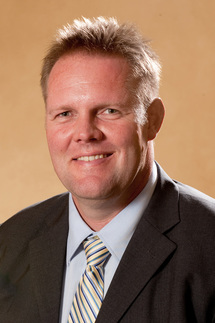 Private sector service providers looking to enter the public sphere should be willing to move beyond simply meeting the basic requirements of a project as defined by the public sector Terms of Reference (TOR). This is according to Gill Jones, Director of Client Solutions at UTi. Jones, in her presentation during the recent 37th SAPICS conference, validated how effective public-private partnership engagements can be in improving the lives and futures of ordinary South Africans. Jones advises that private sector be willing to learn lessons at risk and at cost to the business for a period of time, but should work on building a trust relationship while learning those lessons. “The risks taken and profit sacrificed might not make traditional business sense, but it has a bigger goal – the heart of the supply chain – that of providing services of a high quality to South Africans.” South Africa’s future, its success, rests upon the upliftment and education of her youngsters. While more than 20% of state expenditure is allotted for the purpose, the timely delivery of resources to around 11 million learners, more than half of whom are in rural schools, is testing. A partnership that does more than ‘just’ work Private courier and logistics firm UTi and the Lebone Litho Paarl Media Joint Venture (JV) were tasked by the public Department of Basic Education (DBE) with the distribution for the WorkBook Project. The state-funded initiative delivers nearly 60-million of the books throughout South Africa. Unlike textbooks, workbooks are provided for learners to practice their language and numeracy skills – those already taught in the classroom. The UTi-JV-DBE partnership saw workbook deliveries to learners improve from below 95% in 2011 to a staggering 99.9% in 2014. Learners not only had their workbooks on time, but six months prior the start of classes. A lack of accurate data prompted UTi to recommend that a database cleansing process be followed, allowing the company to streamline distribution. “Although database cleansing and maintenance was not in the TOR of this project, it delivered immense value in terms of meeting and exceeding project deliverables, and in the end achieving the truly important objective of getting the right textbooks to the right schools at the right time,” Jones explains. How to make Public-Private Partnerships work “Working in the public sector, you are bound to very strict Terms of Reference. As a private sector provider, working on that size of project with public sector for the first time, you have to remember that you are dealing with public funds that need to be regulated according to the upfront-agreed TORs”,” says Jones. “Once you’ve won the project, and you start setting up Service Level Agreements (SLAs), you are bound to the rigid TORs, with no room for negotiation on either time or price.” Jones doesn’t want these facts to put off private sector providers from engaging with public sector and ultimately achieving the best possible service delivery for South African citizens. “Just keep in mind that with limited information you have to cost a responsible risk factor to it,” she explains. “From there on it is up to you to stay focused on the end goal, and let your experience guide you in building trust relationships that will allow innovation to be to the benefit of the greater good.” ENDS _______________________________________________________________________________________________________ MEDIA CONTACT: Cathlen Fourie, 012 644 2833, [email protected], www.atthatpoint.co.za For more information on SAPICS please visit: Website: www.sapics.org.za Twitter: @SAPICS01 LinkedIn: SAPICS group Facebook: OperationsManagement ABOUT SAPICS – your supply chain network SAPICS is a professional knowledge-based association that enables individuals and organisations to improve business performance. SAPICS builds operations management excellence in individuals and enterprises through superior education and training, internationally recognised certifications, comprehensive resources and a countrywide network of accomplished industry professionals. This network is ever expanding and now includes associates in other African countries.  Article by: Cobus Rossouw, SAPICS President Article by: Cobus Rossouw, SAPICS President Editor’s note: For a selection of high resolution event images available for publication please visit http://bit.ly/1cIII4v The recent 37th Annual SAPICS Conference and Exhibition held true to its long-standing reputation as the leading event in Africa for supply chain professionals. The sessions covered an array of topics with some impressive speakers stepping up to the stage to deliver significant insight into topical issues, challenges and trends affecting not only the supply chain management profession, but also business in the context of global economic growth. Opening keynote speaker Justice Malala bravely took on a political stance, often a risk, and provided some excellent perspective on the challenges facing the profession. His view was that there is plenty of noise in South Africa across both politics and industry and that it is necessary to be very selective in the issues one spends energy on. Justice’s advice was elegantly simple – figure out a way to worry better. He advised us to spend more energy and thought on issues that could make a difference to our immediate environment, whether in the short or longer term. Although Supply Chain Management (SCM) professionals are experiencing frustration with government for seemingly not getting the basics right, there needs to be a way of channelling this energy towards positive outcomes. Yes, we need to make the call to government and make them realise why these areas need attention, but we also need to focus on what SCM can do for economic growth. One of the reasons I am so proud to be part of this profession is that we always seem to find a way to get things done and, if we can’t find a way, we invent one. Innovation is central to the profession and the people that populate it. There were a number of upbeat themes that threaded their way through the conversations and discussions during the event. SCM professionals are aware that to change and develop people there needs to be flexibility and adaptability alongside a commitment to using technology for change. Being ready for, and forcing, change should be a focus area. We need to remain optimistic and go and search for another way to get things done. It’s amazing what we have accomplished, but we spend too little time celebrating our success and tenacity. Another problem raised at the event was the lack of skilled and talented people who work hard and want to try new things and how it is impacting on the profession. This is not only relevant to SCM, but also to most of South Africa’s public and private sectors. Solutions put forward included changing basic education standards, decreasing bureaucracy around skills development and spending money not only on training, but ensuring that this spend is aligned with strategic business objectives. The biggest challenge for SAPICS as representative industry body is to be relevant for business in general, not just supply chain management. SAPICS will therefore continue to strengthen alliances with both international and local bodies for the greater good of the profession, but we need the help of our incredible industry professionals to position the Supply Chain Management function as a strategic business imperative. ENDS _______________________________________________________________________________________________________ MEDIA CONTACT: Cathlen Fourie, 012 644 2833, [email protected], www.atthatpoint.co.za For more information on SAPICS please visit: Website: www.sapics.org.za Twitter: @SAPICS01 LinkedIn: SAPICS group Facebook: OperationsManagement ABOUT SAPICS – your supply chain network SAPICS is a professional knowledge-based association that enables individuals and organisations to improve business performance. SAPICS builds operations management excellence in individuals and enterprises through superior education and training, internationally recognised certifications, comprehensive resources and a countrywide network of accomplished industry professionals. This network is ever expanding and now includes associates in other African countries. |
Welcome to the SAPICS Newsroom. For media releases prior to August 2014, please click here.
Archives
January 2017
Categories
All
|

 RSS Feed
RSS Feed